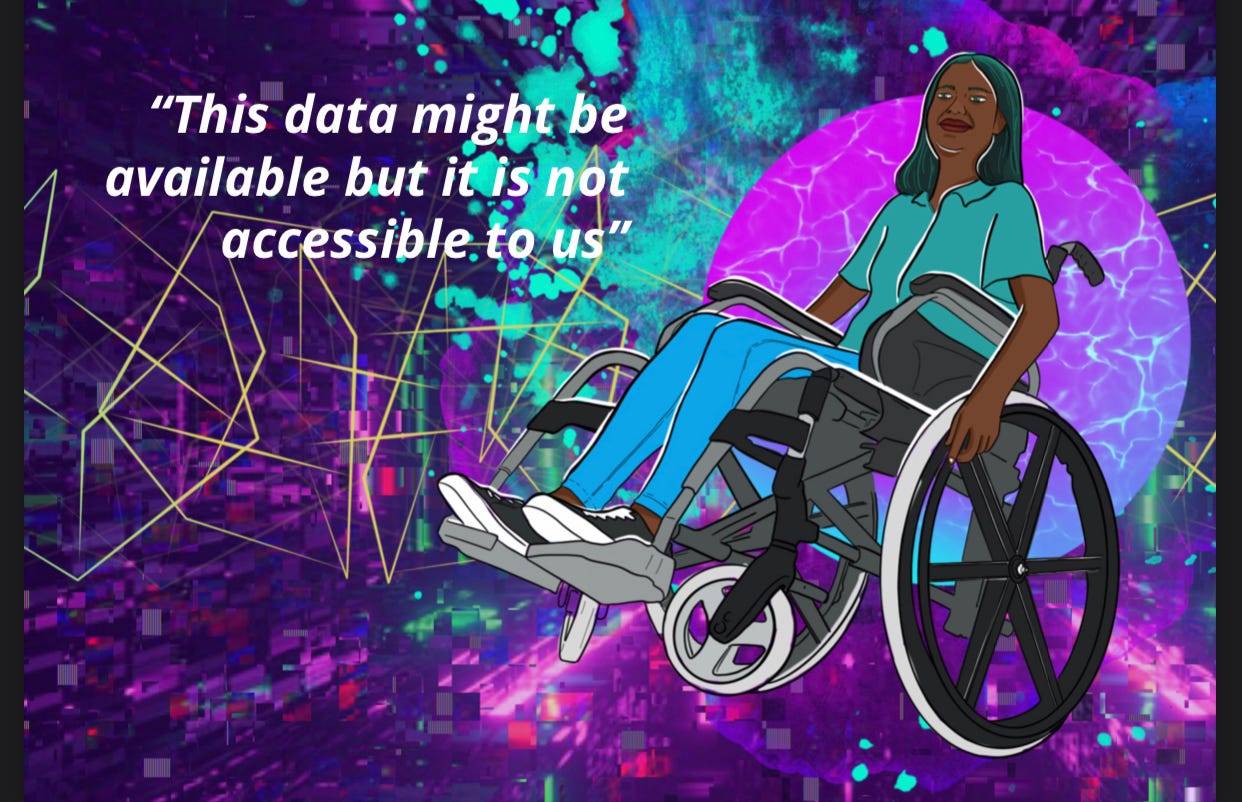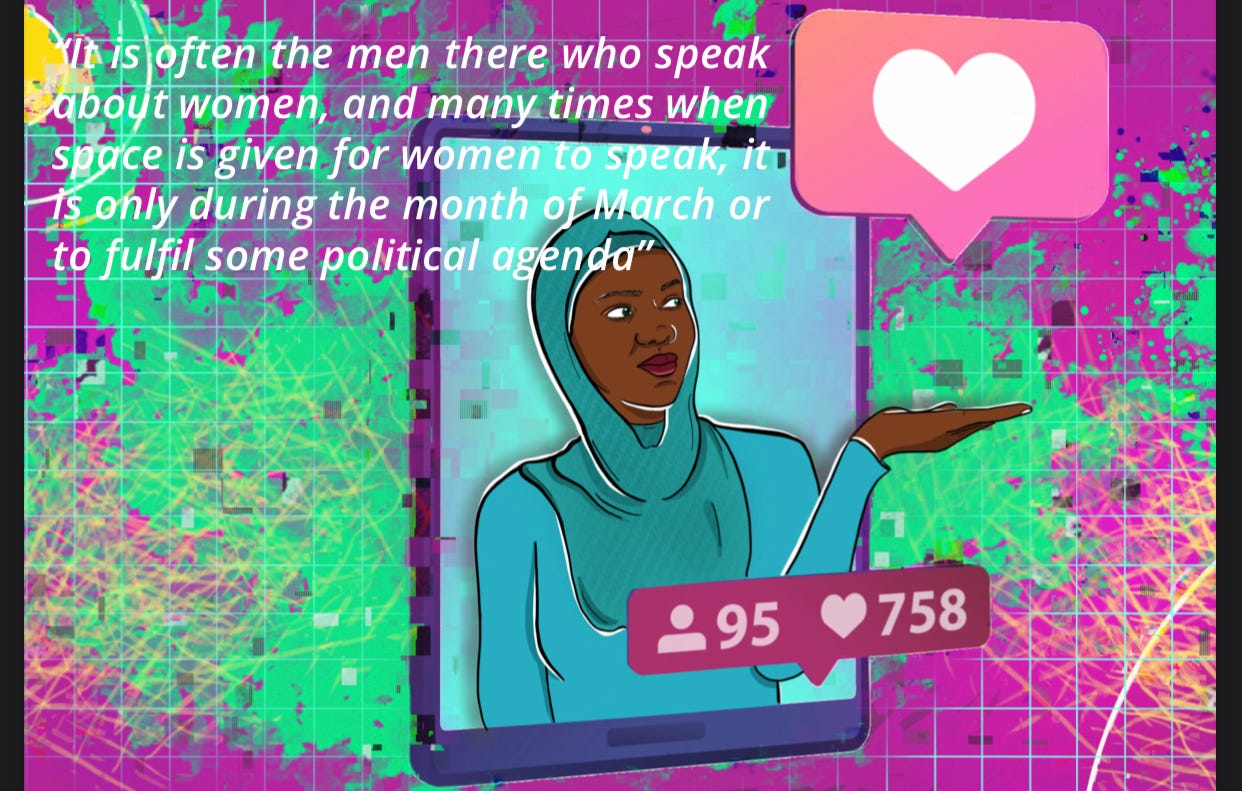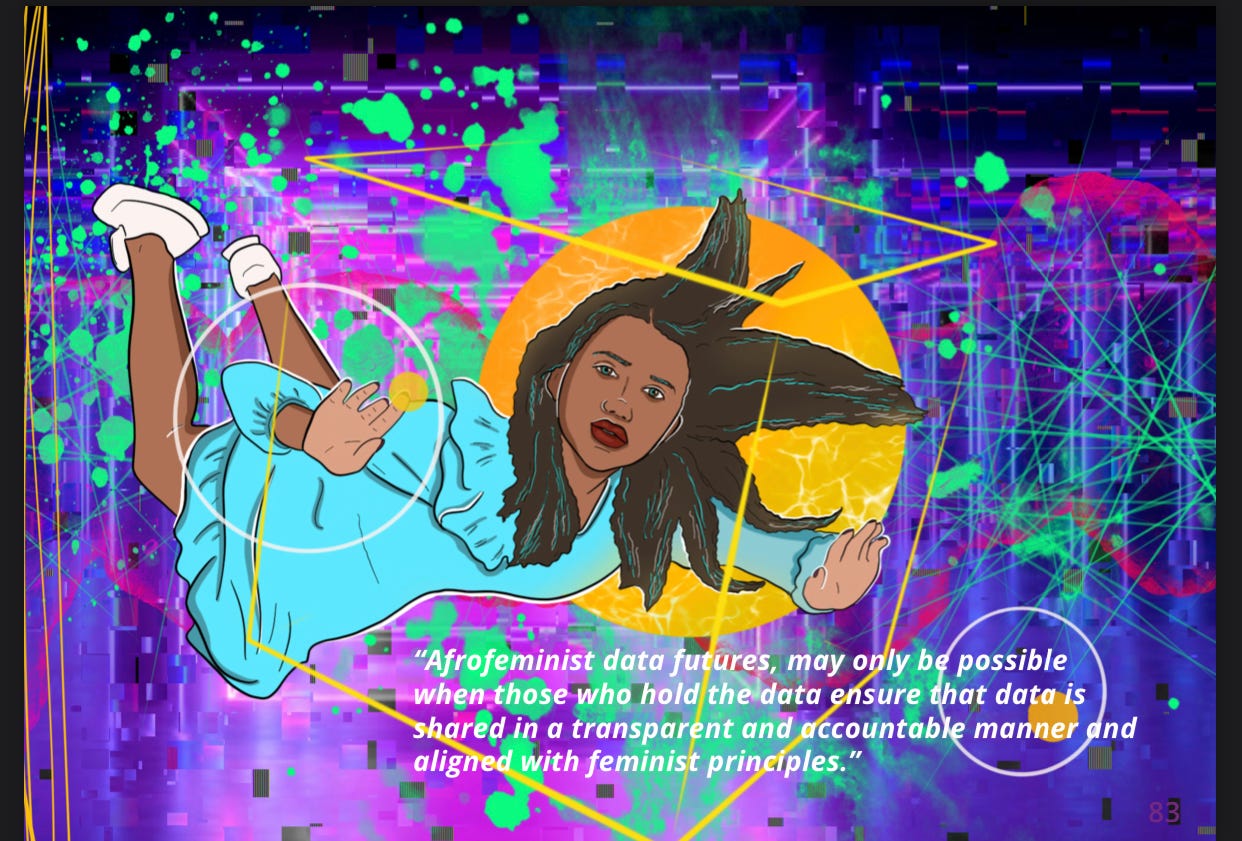Garnett Achieng is a data and digital rights researcher working at Pollicy. In this edition of Hello I Am, she discusses the origin story of Afrofeminist Data Futures: Exploring Data Use by Feminist Movements Across Africa, the award winning research paper she co-wrote.
My teenage and post high school interests may have signalled my work now, especially because that was when my obsession with the internet began. Back then, I would spend hours and hours watching videos on Facebook and Buzzfeed, the latter being where I started engaging with feminist content creators. This led to my interests in looking at the connection between feminism, women’s rights, technology, and the internet. So it was really a one-thing-led-to-the-other situation, even though I had a couple of eureka moments along the way.
In college, for example, I took a class called Radical Thinking where we were introduced to exponential technologies like AI. I remember being so fascinated by Peter Diamantis’ 6 Ds of Exponentials theory which explains the stages most technology goes through before disrupting life as we know it. Another aha moment was discovering Nanjala Nyabola, a Kenyan technology analyst. Reading her book, Digital Democracy, Analogue Politics (which my friend Goitse lovingly gifted to me), was like an affirmation. I knew I wanted to produce a similar spot on analysis on the tech revolution as African women were experiencing it.
Afrofeminist Data Futures: Exploring Data Use by Feminist Movements Across Africa (or ADF) was inspired by the lack of material on the relationship between African women and data, and more specifically data feminism. Before ADF, to the best of my knowledge, most sources on data feminism were from the American context.
The project sought to better understand how feminist movements in sub-Saharan Africa can be empowered through the production, sharing and use of gender data, and how this knowledge can be translated into actionable recommendations for private technology companies in terms of how they share non-commercial datasets. Put simply, we wanted to make something that reflected the African woman’s realities. Our research was conducted remotely, so we were also able to reach women in Portuguese and French speaking countries.
Neema Iyer, Chenai Chair, and I worked on the project together and it took us 4 months to complete it. At the first stage, we mapped as many feminist initiatives as we could across the continents, both formal and informal. We then interviewed about 26 African women who were all running different feminist and social justice initiatives.
The next stage was conducting an in-depth study of the relationship between feminism and data. We looked at journal articles, books, and news articles that explored this relationship. Some notable sources for us was Catherine D’Ignazio and Lauren Klein’s Data Feminism, and Professor Sylvia Tamale’s book, Decolonization and Afrofeminism. Professor Tamale’s book has just been released, and contains a great chapter on digital colonialism in Africa.
The last stage was the analysis stage where we took all of our transcribed interviews and analyzed it for insights. This makes up the meat of the report; the reflections of African women, and their relationship with data.
My favourite things about the report have to be the visuals incorporated, and feedback from the community. Neema is a phenomenal artist and her depictions of afrofuturism on the report was simply amazing. Also, we just won the Equals in Tech 2021 Award for Research, so that’s very exciting.
You can access the report here, and a review by Robos of Tech Law and Policy here.







what an exciting time for technology in Africa, really impressed with this piece and I can’t wait for the next installment.
Wow, this is very enlightening!
Thank you.